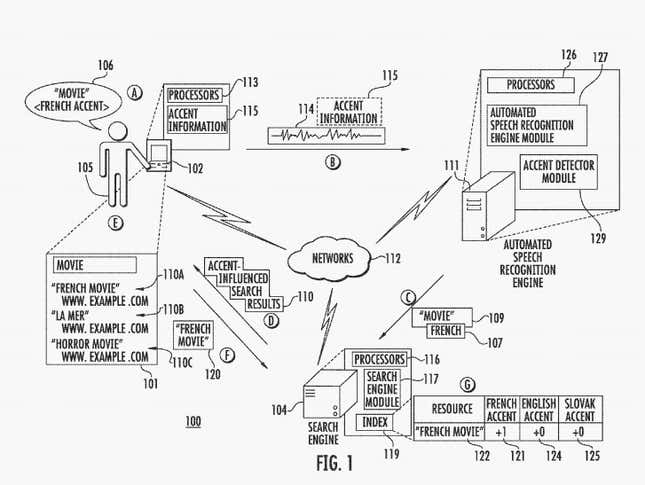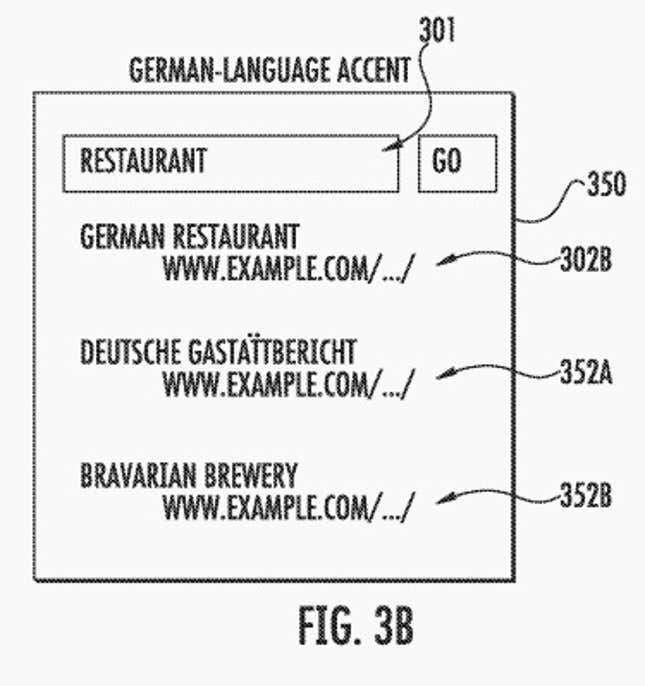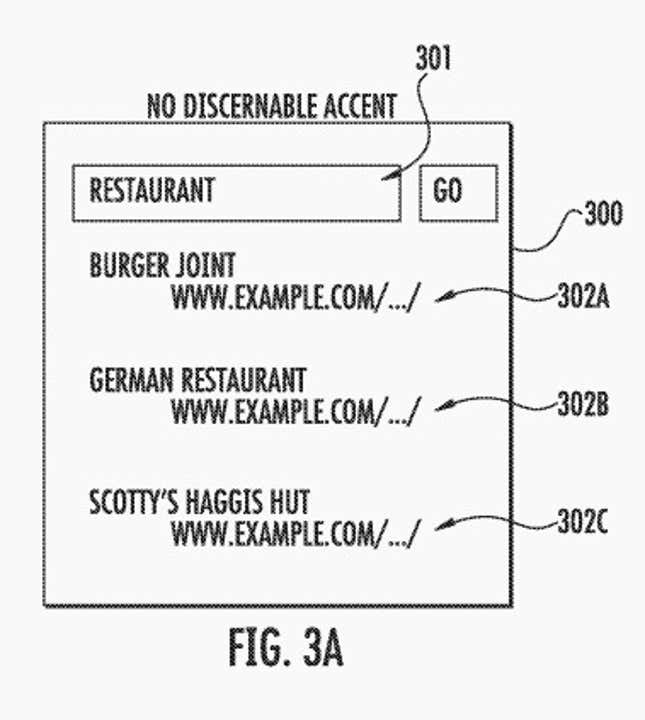If you say “tom-ay-to” and I say “tom-ah-to,” Google may someday suggest a tall latte for you and a nice cuppa tea for me.
In a patent awarded today, Google outlined a voice search system that would assess users’ accents and predict their preferences for restaurants, places, and movies based off that accent.

The patent says that the results would use data from users with the same accent who have written reviews or shown interest in particular products or places online. Google would then apparently display “accent-influenced search results” that predict the best options for you within a particular category:
For example, if English-language speakers with a French-language accent show a preference for a particular result for the query terms “restaurants in Scranton” than do English-language speakers with a Russian-language accent, a search engine will be more likely to select that particular result for another user who provides a voice query in the English language with a French-language accent.


While Google’s existing voice search software has already started to come to grips with accents from around the world, it doesn’t currently take that accent into account when serving up search results. Google’s patent suggests that it would should show more content that relates to a user’s assumed place of origin when accent search is turned on.
The patent implies some pretty big assumptions—that Germans prefer to eat German food, regardless of where they are in the world, for example. One would like to think that Germans aren’t always looking for sauerkraut, the British aren’t always looking for a nice cuppa, and Americans don’t always crave a cheeseburger. But perhaps Google knows us better than we know ourselves.
While there’s no guarantee that the features described in this patent will actually be added to Google’s voice search—the company wasn’t immediately available for comment but has often said that a patent does not necessarily mean the company plans to develop the product—it could be an interesting addition, as long as you can turn it off.
There’s also no mention in the patent of how granular the accent recognition would be: Would Google only show thin-crust pizza joints for New Yorkers searching for restaurants, and direct Chicagoans to the deep-dish pies? Would it know the difference between a hoagie, a hero, and a sub? Or a pop, a soda, and a Coke?
